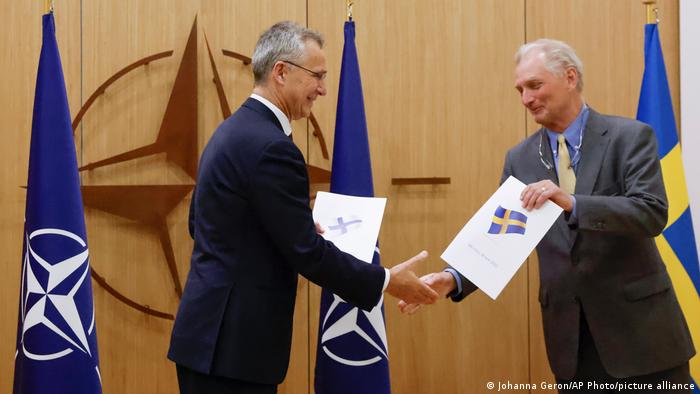
Turkey also cleared those two countries should not bother sending their delegations to convince them
With the Russian invasion of Ukraine approaching three months, Sweden and Finland, two Nordic countries that have traditionally avoided military alliances, have requested to join the North Atlantic Treaty Organization (NATO). However, their integration into NATO may be difficult. Turkey, which has been a member of NATO since 1952, has stated that it will reject the Nordic nations’ admission, citing the fact that they harbor “terrorist organizations”.
Amid the chaos in the world, Sweden and Finland kept their policy of non-alignment a priority and never took sides. They focused on being happiest countries in the world and that is evident with all the indices, which ranks these countries among top in all the development indicators.
Why thinking about joining NATO now?
The Ukraine crises has been an eye-opener for the world and that goes too for these two countries. Russian invasion has changed the security dynamics for the whole region. The political and public discourse is also changed and the level of insecurity has grown.
Finland shares a direct boundry with Russia of around 1300 km and the country really doesn’t want to end up like Ukraine. Sweden and Finland, unlike Ukraine, do not have a boundary dispute with Russia. However, until the 2014 political transition in Kyiv, Ukraine had no serious conflict with Russia.
They moved fast to apply for NATO membership in the hopes of using the organization as a deterrent against future attacks. Sweden and Finland have established strong relations with the West. Both countries are European Union members.
Their NATO relations are the closest that two non-members may go to the alliance. They participate in joint military exercises with NATO, share intelligence, and have backed NATO military missions around the world.
They didn’t apply for membership until now because they didn’t want to disrupt Europe’s security status quo. Countries was also concerned about Russian reprisal. The Russian invasion, however, has changed the status quo. Russian military reprisal is also unlikely given that Russian troops are engaged in what appears to be a protracted conflict in Ukraine.
Why is Turkey Against?
President Recep Tayyip Erdogan has stated repeatedly that Turkey will oppose Sweden’s NATO membership quest. Decisions in NATO are made unanimously, which implies that each of the bloc’s 30 members has a veto. Turkey claims that Sweden and Finland are linked to “terrorist” organizations such as the Kurdistan Workers Party (PKK) and the People’s Protection Units (YPG).
Since the mid-1980s, the PKK, which seeks greater autonomy for Turkey’s Kurdish minority, has maintained an armed insurgency. The YPG is Syrian Kurdistan’s armed branch, which controls parts of Syria’s Kurdish territory.
Mr. Erdogan’s government has repressed Kurdish political parties and leaders in recent years, including the left-wing People’s Democratic Party (HDP). Since 2016, Selahattin Demitra’s, a prominent Kurdish politician and former legislator who ran for president, has been in prison. Turkey has justified its activities by alleging that the PKK, YPG, and other political groups affiliated with them are “terrorists.”
Turkey claims that Sweden, and to a lesser extent Finland, have intimate relations with Kurdish militias, particularly the YPG. Last week, Turkish state television stated that Sweden and Finland had refused to extradite 33 people sought by Ankara. Mr. Erdogan has described Sweden as a “nesting ground for terrorist organizations” and has said that Turkey will not support their NATO membership in the future.
Way Ahead:
If Turkey follows through on its threats and denies the Sweden and Finland bid, it will put the Nordic nations in a tricky position: they have already given up neutrality, yet they will not be protected by NATO.
Even if the proposal is approved, the formal induction of these countries into the alliance will take time. The procedure took 20 months in the case of NATO’s most recent enlargement, when North Macedonia was accepted to the alliance in March 2020. The procedure took 18 months in the instance of Montenegro, which joined NATO in June 2017.
Read More – Erdogan not ready to accept Sweden as NATO member













